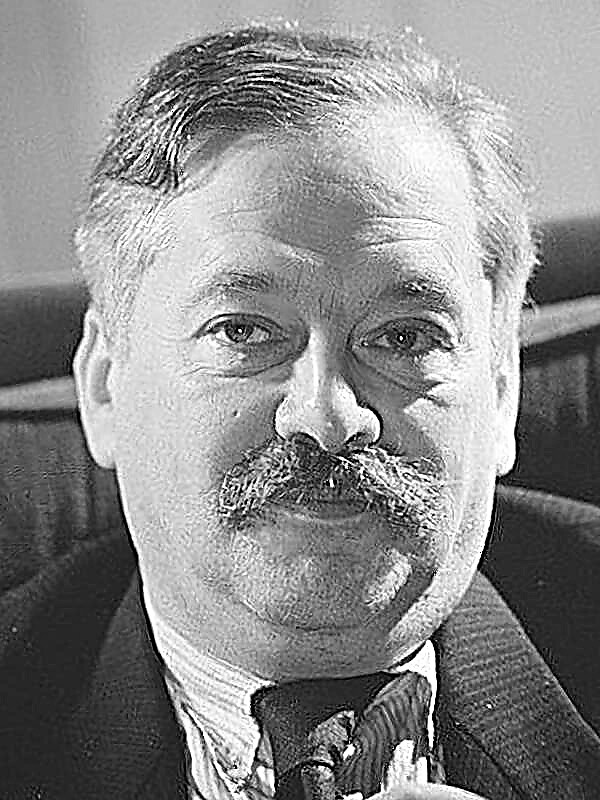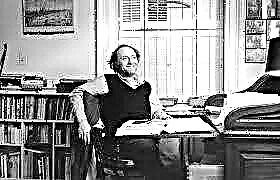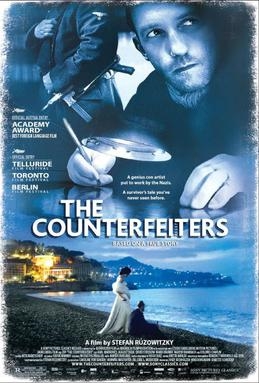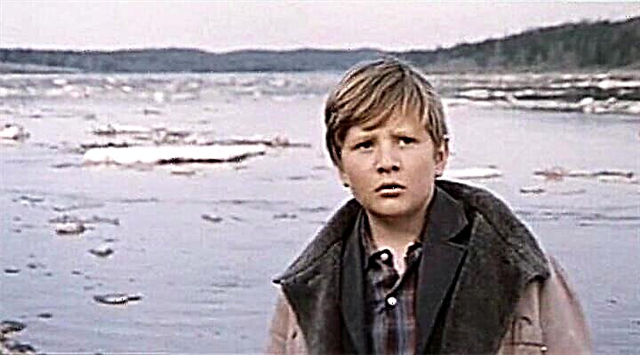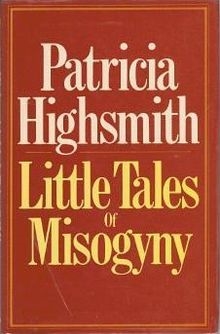A good short retelling is the key to success in studying literature. It allows you to quickly repeat the main events from the work and helps to remember the plot. In this article you will find all the stories from I. Turgenev’s series “Notes of the Hunter” in abbreviation.
Khor and Kalinych
People in the Oryol and Kaluga provinces are significantly different. In Orel, men are lower and poorer, in Kaluga, taller and better dressed. The last province is more suitable for hunting.
The author went hunting in the Zhizdrinsky district, where he met the landowner Polyutykin. He called the storyteller to him, along the way they decided to go to the man of Polutykin, Khorya. In his hut it was clean and soundly, they were met by a young guy (the son of a peasant, of whom he had many). In the house, friends found refreshments - kvass, bread, cucumbers, as well as a cart to the master's house. Along the way, they visited Polutykin's “office”, which was already “abolished”.
At dinner with the landowner, the narrator asked why Horus lives separately. It turned out that an enterprising peasant begged to settle him in a swamp for dues. At such a disadvantageous place, the hero became very rich.
The next day, friends went hunting. This time they stopped near Kalinych’s house. This peasant economically loses to the first, but at the same time good-natured and helpful.
The next day, when Polutykin went to his neighbor Pichukov, the author had a chance to meet Khorem when he went hunting alone. He was again treated with milk and bread, and they began to talk with the peasant on economic topics. Ferry spoke carefully, weighing every word. The narrator settled down in the peasant's barn for the night.
In the morning at breakfast, the author saw the whole family of Khorya, all his sons and their wives lived with him, only two were unmarried, one of whom jokingly bickered about this with his father. Soon, his friend Kalinych came to the owner with a bunch of strawberries in his hands.
The author spent three days with the peasant free from hunting. He was occupied by the friendship of Khorya and Kalinych, they talked freely with him, so the narrator could observe this convergence of opposites.
They loved each other, and loved the opposite qualities. Kalynich was closer to nature, Pole - to society. The latter knew life well and taught the storyteller a lot. Friends were interested in hearing from the author of his story about foreign trips, only everyone asked about his: Poor about people and customs, and Kalynich about nature and local beauties. From these conversations, the narrator made a statement about the Russian nature of Peter the Great in his transformations: he looks forward with courage, not afraid to change a lot in life. Despite the progressiveness, Khorya also had prejudices: he did not recognize education and despised women. Sometimes he and his friend talked about the gentleman whom Kalinych adored, and said some unpleasant things that discredited him, for example, that Polyutykin did not care so much for peasants, since Kalinych did not even have boots. One lyrical string was alive in the Choir - music, he liked to listen to Kalinych’s playing the balalaika.
Yermolai and Melnichikha
A draft is a watch for a bird, which itself will fly directly to the gun if you show enough patience and wait a long time until the forest animals stop being scared of you. The author with the hunter Yermolai went on a draft. Yermolai is tall, thin, not richly dressed, on his belt there is a bag with gunpowder and a shot (he doesn’t buy a bandoleer and a bag in principle). He hunts with a single-shotgun of strong recoil. He never fed his dog Jack, so the dog was thin, exhausted and indifferent to everything except hunting. Yermolai belonged to one landowner familiar to the narrator, to whom the hunter was occasionally supposed to deliver a bird, and the rest of the time he was "on free bread." The hunter is a man of the ранного ugly kind ’, a carefree crank. But all his absurdity passed when it came to hunting. Once a week, Yermolai went to his wife in her dilapidated hut. At home he was a real tyrant, but “in the wild” he again became calm and eccentric.
It was with such a person that the author went to craving. In the evening they killed two woodcocks, decided to try again in the morning, and therefore went to sleep at the mill. At first they were not allowed in, fearing that they would burn the mill with "shells". Yermolai suggested going to the village, but far from it. It’s better to spend the night on the ground - so the narrator decided. They began to ask for straw at the mill. The landlord agreed to spend the night under an open canopy next to the building. He also sent a worker with a samovar, and then sent his wife with food.
While Yermolai baked potatoes in ash and boiled a samovar, the author dozed off. When he woke up, the miller talked to the hunter. Their conversation is friendly, Yermolai even offers the interlocutor "to come to stay." When the narrator came out from under the canopy, he spoke to the mill, it turned out that he knew her master, Zverkova. This little-disposed person decided to somehow teach the author from the height of experience. He said that the young people do not know Russia, therefore, the reasoning about the peasants (apparently, thinking about the liberation from serfdom) is wrong, they are “such” people.
His wife did not keep married maids; that was her rule. In their village, they picked up the girl Arina (the future forester) and took to St. Petersburg. She regularly served ten years, and then began to ask permission for marriage. Zverkov considered this a black ingratitude, drove the maid. She left, and after six months she began to ask again. Barin kicked her out again, and then his wife came to him in tears and said that she knew about Arina’s connection with Petrushka-lackey. The girl was cut off and exiled to the village, where her forester husband bought her. But she didn’t bring much happiness, even there were no children, her only child died long ago.
Raspberry water
On a hot afternoon in early August, the narrator was on the prowl. Unable to bear the heat, he went to the Raspberry Water key, where he could get drunk and lie down in the shade.
Two old men sat there. One of them is Stepushka from the small village of Shumilin, abandoned by the master. The stepushka didn’t approach the master, he lived where he had to, they didn’t consider him a man, they didn’t know anything about him and didn’t speak. He "nestled" to the gardener, who did not drive him away. The second - freeloading Mikhailo, nicknamed "Fog", a smiling and stately old man.
The author affably greets the elderly. Says mainly Michael, they discuss dogs. The peasant cites the example of his count, who lived very luxuriously and went broke that he had many dogs. The count "lived on his own time", was familiar with many influential people, was cool at reprisal, but kind. Ruined his state "matreski" (mistress). Akulina was especially distinguished: a simple girl bewitched the master, he was ready for anything for her, so even Mikhail's nephew was taken into the soldiers - he spilled chocolate on the girl’s dress. And now is another time - concludes the peasant.
Then the peasant Vlas went down to the source. He went to ask the master to reduce the rent or to relocate him to corvee. The son of Vlas paid for himself and for his father, working in the city, but before his death he was sick, he himself should remain. Barin sharply refused the peasant; his situation was hopeless.
County doctor
The author fell ill once in the fall, when he was in a county town, in a hotel. A district doctor came to him, prescribed a diaphoretic and a mustard plaster. After they talked, and the conversation was "from the heart." And the doctor told a life story.
Once a doctor played preference with a local judge. Then he was called to the patient: the daughter of the poor landowner Alexander dies. Even by the appearance of the coachman, the poverty of the hostess was visible. Arriving at the landowner, the doctor immediately went to the patient. She was beautiful, the doctor felt sorry for her. Finally, Alexandra fell asleep, the doctors were treated to tea and left to sleep. But he could not sleep, and he decided to go look at the patient. She woke up and asked the doctor to cure her, because ... then the patient in her ear whispered some secret to him, but so inaudible that he did not understand anything. Alexandra did not recover, the doctor stayed with them. Moreover, he felt sympathy. But the patient fell in love with him.
The doctor understood that he would no longer help, the disease prevailed. He sat near his lover at night. Once she woke up, began to look at him and ask if she would die. The doctor admitted that she was in danger. For some reason, Alexander was glad about the possibility of death and confessed his love to him, because now everything is possible. It was hard to die young, without loving anyone, so the last days and nights the girl was sure that she loved Dr. Trifon. But these feelings quickly ended, she died. And the doctor married a merchant's daughter.
My neighbor Radilov
During the partridge hunt with Yermolai, the narrator went into an abandoned garden. Firing a partridge, he scared the girl. It turned out that the garden was not so abandoned, the landowners lived in it. A mustachioed man appeared behind the runaway girl. The author offered him a partridge shot in his possessions. The owner (his name is Radilov) called the narrator to dinner.
When they came to Radilov’s house, Yermolai was immediately offered vodka, and the storyteller was introduced to the owner’s mother. Then he was played on the violin by Fedor Mikheevich (a ruined landowner, took root). A girl appeared who was recently scared of a shot. Her name is Olya. She was not very good, but her features, especially her eyes, attracted attention. The girl, the sister of Radilov’s wife, followed him with keen interest. And the landowner himself had a secret passion, this was evident throughout. But what - this author could not understand.
Olya called for tea. The narrator admired her movements. At tea, they talk about different things, even about the late wife of Radilov. She died in childbirth, then he stayed for a long time, not giving a look about his grief, but wept bitterly when he saw a fly flying on her ajar eye. This story makes a depressing impression. The author is trying to encourage the interlocutor with words that everything can be transferred. Radilov agrees, because he suffered a serious illness in Turkey. The narrator claims that there is a way out of any bad situation. Death is also a way out (a hero in Turkey would die - he would not suffer). The landowner agrees that you should not endure a bad situation, asks Fedor Mikheevich to play a dance and leaves. And the author soon leaves.
On his next visit, the narrator finds only Radilov’s mother: he did not endure a bad situation and fled with his relative.
Ovsyannikov
Ovsyannikov looked like Krylov, he looked important, his look was clever. Everyone respected him. He was not rich, but the economy was tidy, clean, not like that of peasants (odnodvortsi usually differed little from peasants). He also did not pretend to be a nobleman; he was a simple person in everyday life. Ovsyannikov followed traditions because they were part of his life: he didn’t ride in a wheelchair (it’s more convenient to ride in a cart), he didn’t sell bread (but in the hungry year he handed out free of charge). They came to him for advice, asked to judge or reconcile. He did not like haste and haste, kept calm in any situations. His wife was a match for him - important, calm and silent. They had no children.
The author came to Ovsyannikov, was kindly received. The narrator asked the odnodorets if it was better in the old days. Oddly enough, Ovsyannikov did not praise the past, said that at present the landowners have become better, which means that it is now easier for the people.
As an example, he cited the authoritarian grandfather of the author, who just robbed Ovsyannikov’s father of his land. Father filed a lawsuit, for which he was carved, and forced to retreat.
Another case - another neighbor, Komov, was drinking Ovsyannikov’s father because he drank, lied and drunken in a drunken state, tormented serfs. He would have driven the hero’s parent into the coffin, but didn’t have time - he fell drunk from a dovecote.
Ovsyannikov also visited Moscow, he saw the nobleman Orlov-Chesmensky, who lived luxuriously, on a grand scale. The whole city watered at feasts, arranged huge hunts. In one of them, the author’s grandfather’s dog Milovidka jumped, the nobleman really wanted to get her, but the grandfather categorically refused, because he valued the dog the most.
Ovsyannikov also tells about Bausch, the main trapper and the traveler, he loved him more than Milovidka. He could do almost everything on the hunt, but sometimes he could lie down and not get up until they were given wine. Ovsyannikov himself didn’t hunt, since you shouldn’t follow the nobles in this matter, just shame yourself.
The nobles have changed, this is especially noticeable in large ones: they speak well, but they don’t know the real thing. So, the nobleman Korolev, being present at the demarcation, stood up for the peasants, spoke fiery speeches that they needed help, but refused to give the land.
To enter new orders correctly, says Ovsyannikov. However, many nobles did not finish what was started to the end, they abandoned the business, so the peasants became worse. The nobleman Lyubozvonov, arriving at his estate, inspired the clerk not to oppress people, but then he never engaged in farming, lived at home as a stranger.
The narrator and Ovsyannikov drink tea, during tea comes Ovsyannikov’s nephew, Mitya. He writes petitions for the peasants. This uncle condemns this work, because he does not advocate justice, but feeds on it. Mitya for his activities not only goes to drinking establishments for free, but also receives threats from those who are sued with his help. The guy pities the petitioners, sympathizes with their misfortunes. He asks Uncle to pat for the familiar seamstress Fedosya, who can’t pay off her master.
Mitya left this, Franz Ivanovich appeared - a French drummer with Napoleon’s army, who was caught by Smolensk men and was about to drown. But he was accidentally saved by a landowner passing by and made him a music and French teacher for his children. From this nobleman, Franz Ivanovich moved to another master, married his pupil, began to serve and received the noble title.
Lgov
Yermolai called the narrator to Lgov, a large village in the steppe, to shoot ducks. They started hunting near the pond, but nothing came of it, because the dogs could not get their prey, so it was decided to go back to the village for the boat.
Suddenly, hunter Vladimir came out to meet them with a soft voice and friendly eyes. He was freed, lived, interrupted by various earnings, but was literate, read books and was able to speak quite eloquently. The author asked why Vladimir's cheek was tied. It turned out that a careless friend accidentally shot him, depriving his chin and finger.
When the heroes came to the village, Vladimir and Yermolai went behind the boat to a local resident nicknamed Suchok, and the narrator began to examine the graves in the cemetery. Soon the hunters returned with Suchk, the master of fishing. The boat refused to be full of holes, but Yermolai had to fix it, and the villager agreed to go with the hunters, because you can’t row in a grassy pond, you need to "shove." While Yermolai was gone, the author began to talk with Suchk.
The new lady made the peasant a fisherman because his appearance was not suitable for the coachman whom he had served before. And in his youth, he served as a cook and a “coffee girl” (was at the sideboard), was an actor, and performed in the fortress’s theater of the hostess. After the actor, Bitch was again made a cook because his brother escaped. A lot of the hero changed professions, and was a phaletor, and a gardener, and a traveler. And all the crafts taught Bitch life. One of the housewives did not marry, and therefore did not allow her peasants. The peasant lives without a salary, only they give out grubs.
This ended the conversation, Bitch ran after the pole, and soon the hunters sailed on a peasant's boat. The hunt was successful, although not always fell. Vladimir shot pretty unimportantly, to the joy of Yermolai.
But suddenly the boat could not bear the weight and began to sink. Everyone was in the water, duck bodies swam around. Yermolai scolded everyone and went off to search ford with a pole. He did not return for more than an hour, everyone froze. Finally the hunter appeared, he found a shallow place along which you can reach the coast. Not forgetting the ducks, he led everyone behind him. After a short time, everyone was sitting in a hay shed and having dinner.
Bezhin meadow
On a beautiful July day, the narrator successfully hunted and shot a lot of game. However, the hero got lost, he walked, thinking that he had already left for familiar places, but it turned out that he again gave the hook. The author looked in vain at his dog Diana - she knew nothing. Night was approaching.
And then he went to the fire, in which the village children were sitting. They guarded the herd at night. Having talked a little with the children, the narrator lay down under the bush to rest, but continued to watch them.
There were five boys - Fedya, Pavlush, Ilyusha, Kostya and Vanya. The first was clearly from a wealthy family, well-dressed. The second was dressed simply, outwardly unpretentious, but his eyes were smart. The third had an inconspicuous appearance. The fourth looked sad and sad. The fifth boy, the smallest, was sleeping under a mat.
Ilyusha tells how he saw a brownie when he spent the night in the role in which he worked. Kostya talks about the carpenter Gavril, who met with the mermaid, but escaped her seduction by crossing himself. Although it wasn’t such a salvation, then the carpenter walked sadly. Ilyusha again takes the floor, reports evil spirits on an abandoned dam. Psar Yermil rode through the dam and saw a lamb on the grave of the drowned man, decided to take it and with the words "Byasha, byasha", reached for the animal. The lamb began to mimic it.
Suddenly the dogs barking interrupted the story, and they ran into the bushes, Pavlusha galloped after them. Soon they returned with nothing, everything is calm. The boy thought it was a wolf, but he was not afraid. The conversation continued.
Ilyusha continued the conversation with the story that a deceased gentleman, who was seen by old Trofimych, was walking in the village of Varnavice. The elderly peasant woman Ulyana also saw the dead. Then Pavlusha tells of a solar eclipse that frightened his entire village. Everyone was waiting for Trishka (the devil), even mixed up with him Bochar Babylon. The boy Kostya also tells his terrible story: he walked past the place where someone was moaning. He is told that a forester was killed there, this scares the boy. There is talk of both the goblin and the water (Pavlush is advised to carefully scoop up the water, otherwise it will be like Akulin the fool, who ruined the water when she wanted to drown because of her drowned lover). The returning boy says that he heard the voice of Vasya, who called him. Everyone concludes that it is a watery one, the sign is very bad. Pavlusha resolutely says that one cannot escape fate, one should not be upset. The conversation calmed down as morning approached.
In the morning, the author left the boys. Then he found out that Pavlush died a year later - he fell from his horse.
Here is an analysis of this story.
Kasyan with Beautiful swords
The author returned from the hunt and dozed off. Suddenly the coachman became worried because he saw a funeral. This was a bad omen, which immediately acted: the axis broke. Martyn the carpenter is buried, his wife and mother are escorting him to the last journey.
While the procession took place, the coachman concluded that a step could be reached to the settlements. Indeed, they got to the Yudin settlements. It was a very poor and deserted place. Finally, the narrator found a dwarf sleeping on the ground in one of the courtyards. The author explained to him his request for help with fixing the cart, but there was no one to fix it: the dwarf himself could not help, the rest were at work. The old man does not want to help at all, he advises to leave, after persuasion he is still reluctant to agree to reduce it to merchants.
The coachman and the dwarf recognized each other, the old man's name is Kasyan. The coachman makes fun of the dwarf, and then informs him of the death of Martyn, mockingly asking why he did not cure him, because he is a doctor. Then the first one tells the narrator that Kasyan is a holy fool, he must be watched, and the merchants should choose the axis themselves.
Arriving at the merchants, the author quickly bought an axle and went to the cuts where the black grouse were found. Kasyan went with him. For a long time the author did not find the game, finally shot the coronel, which made a depressing impression on the old man. Later it got too hot, and the satellites crouched in the shade. Kasyan asked why the storyteller killed the coronet, because it is fun for him, and to kill a free bird is a sin. Here the fish has cold blood, it can be. The old man himself lives what God sends, catches nightingales, but does not kill them. In fact, Kasyan is not a doctor, he just knows the value of some herbs, but could not help Martyn, because he was not a tenant. He used to live on Beautiful Swords, but Ward moved him to this cramped place. Kasyan walked a lot, visited many places, it is a pity that there is no justice anywhere.
Here the conversation was interrupted by a little girl with mushrooms, this is the relative of the old man, Annushka. He speaks affectionately to her, but does not allow him to talk to the narrator. Later, he confesses to the author that he took all the game.
When Kasyan and the narrator returned with the ax, the coachman first criticized it, and then he set it down, and he and the author left. The latter asked the former what Kasyan was for the man. The coachman says that the old man is a “wonderful” man, he is literate, but restless, everything does not sit in one place. Anushka's relative is an orphan, the old man became attached to her and even teaches her to read and write.
Burmister
The landowner Penochkin has a lot of game on the estate. He is an outwardly pleasant person, but there is something repulsive about him. The author did not get to know him, mainly because of black grouse and partridge. In the house of Penochkin, a guest is covered by vague anxiety.
Once the storyteller had to spend the night at the landowner. He was fed an English-style breakfast. Upon learning that the author is going to Ryabov, Penochkin is going with him. Due to the slowness of the landowner, the men left much later, cushioned. Penochkin was afraid of every bump. It turned out by chance that they arrived in Shipilovka, where Penochkin suggested spending the night at his burmistra.
In Shipilovka the elder met them, invited them to the burmistra in the hut. While the heroes rode around the village, all the peasants dispersed from the glance of the master.
The wife of Burmistra Sophona went to the pen, and he himself followed her example. Sophon's zeal increased even more because of his intoxication.
At dinner, Penochkin talked with the burmeister about delimiting the latter. Little land, but Sofon thanks the master. True, a dead body appeared on the ground, but it was thrown to a neighboring site. Penochkin liked the trick, later he praised the burmistra, that with him the men pay the rent without arrears.
On the next day, Penochkin shows the estate to the narrator. Everything is in order, only the gloom of men is striking. But here they meet the old man Antip and his son. Sofron ruins him: out of turn takes his sons into recruits, takes away a cow. The bermistra made a mistake for the old man, after which he completely enslaved. Sofron himself says that this is just a slacker and rude. Penochkin agrees with him and gives the peasants a rude rebuke.
When the storyteller finally got on a hunt, a familiar peasant told him about the unlimited power of Sofron, who considers himself the owner of Shipilovka and draws all the juices from the peasants. The master does not care about the methods, the main thing is that there are no arrears.
Office
In the fall, the narrator during the hunt fell in the rain and decided to hide in a low hut. It soon turned out that there was still a man in the cave - a decrepit old man. He explained to the author the road to Ananyev or Sitovka. It also turned out that the old man is a watchman here - guarding the peas. Security is not very effective, as he sees and hears poorly.
The author went in the direction indicated by the old man and found the village. He saw a house similar to the headman’s dwelling, and went there. But it turned out to be an office where a guy with a chubby face sat on duty. The conversation with the narrator on duty woke the chief clerk, who was sleeping in the next room. After some persuasion, this fat man agreed, he treated the hero with tea.
During a conversation with the duty Fedya, the author learns that the lady Lady Losnyakova disposes of the estate herself, orders do not work without her signature. The attendant discusses the benefits of living in the office of merchants. There is no salary there, but it’s calmer, this estate lives in a popular way.
After drinking tea, the author falls asleep, and after waking up he hears how the chief clerk Nikolai Yeremeyevich agrees with the merchant on the price of bread. Having finished with the merchant and checking whether the narrator is sleeping (he lay down and closed his eyes), the clerk calls Sidor who has come. He complains that the lady asks the carpenters, distracting from third-party earnings, and asks for help. Nikolai Yeremeyevich pushes him along with a bribe from the office and sends him to his home. After Sidor comes a crowd led by Kupriyan, who was brought into the source (the companions of Kupriyan are obviously amused by this fact, they mock him with the clerk). The conversation is interrupted by the fact that they sent for Nikolai Yeremeyevich from the lady.
Instead of the clerk comes the chief cashier. Pavel appears in the office, who calls Nikolai Yeremeyevich an earpiece. When the clerk returns, the visitor expresses his displeasure: Nikolai Yeremeyevich pursues the courtyard girl Tatyana, does not let them get married with Pavel, the clerk, together with the housekeeper, tell unpleasant things about Tatyana, she was even demoted to a dishwasher and started to beat. The visitor switches to threats, the clerk threatens in response, then Pavel rushes at Nikolai Yeremeyevich ... The end of the scene is not described, but after that the narrator found out that the lady only exiled Tatyana, the other participants in the conflict remained in their places.
Biryuk
In inclement weather, the narrator ended up in the forest when he rode alone with tremors from the hunt. He would have been completely wet (it began to rain), but he came across a local forester. The latter led the author to his house, where there was only a girl of about twelve and a child in a cradle.
Soon the owner appeared, this is Thomas, nicknamed Biryuk. They said about him that he did not give anyone a descent. During the conversation, it turned out that the forester's wife escaped with a passing tradesman. Biryuk says that he doesn’t have any bread and tea, he offers to take the narrator to the forest, as the thunderstorm ends. When they went out, Thomas heard that someone was chopping the master's forest, the criminal must be caught urgently.
The thief turned out to be a poor peasant, whom the author decided to redeem in his heart. And Biryuk tied him up and led him into his hut. After some time, the peasant begins to persuade the forester to let him go, because he steals from want. But Thomas cannot, they will exact him. Then the offender begins to swear and provoke Biryuk, threatens him. A forester threateningly approaches the thief. The narrator approaches Thomas, saying to leave the peasant. But suddenly Biryuk pushes the thief out of the house, lets him go home.
Two landowners
The landowner Vyacheslav Illarionovich Khvalynsky is called a respectable man. He once served, now lives on his estate, is considered a bridegroom, weak to the fair sex, loves cards. He conducts housekeeping poorly, the manager is stupid, although he is constantly busy. He does not know how to treat people below him on an equal footing; talking with them is just strange.
Mardarii Apollonovich Stegunov - a hospice and joker, lives on a grand scale and in an old way. He is also a bachelor, does nothing at all, a hospitable host.
Once the author visited the second landowner. At the time the storyteller appeared, Mardarii Apollonovich treated the young priest, despite the refusals of the latter. When the priest left, the landowner went out with the storyteller to the balcony, noticed other people's hens in his garden and forced the courtyards to catch them. Deciding that they were Yermily Kucher, Mardarii Apollonovich ordered his daughter to be caught, who was sent to drive the birds. The girl immediately got on the back from Avdotya. The spectacle amused the owner.
The landowner separated himself from his peasants, he evicted them to a bad place, took everything away, motivating him to be a master, and they were just peasants, and peasants were so-so disgraced.
During tea, measured blows were suddenly heard - it was punished by Vasya the barman. Mardarii Apollonovich announced the punishment with a kind smile. Later, Vasya himself, met by the narrator, responded with understanding about the beatings, the master did not punish him like that.
Lebedyan
The author ended up in Lebedyan at the height of the fair, as he had gone too far during the hunt. He stayed at the hotel, changed clothes and went to the fair. There, the narrator tried to find horses for the three, but found only two. After the failure, he went to the "coffee shop", where all visitors gathered.
In the “coffee house”, Prince N. and Lieutenant Viktor Khlopakov played billiards. The latter always knew how to cling to the rich, but for a short time, but only with the help of friends did he feed and dress. Around the players are spectators. The prince wins. It is clear that he is in charge of their company, and the rest are as familiar as Khlopakov. The company then plans to go to the theater and to gypsies.
The next day, the narrator set off again for the horses, he began with the young lady of Sitnikov. The seller is helpful, he surrounds the buyer with care. First, the Ermine is shown to the author, then the Falcon and several more horses. One of them was liked by the storyteller, but Sitnikov bargained for a high price. They began to bargain. But they were interrupted by the arrival of Prince N. This client is more important for the young lady, he began to spread in front of him. And shows the best horse, Peacock.
The author does not wait for the end of the transaction, but leaves and sees the announcement of another Chernobay breeder, to whom he is sent. According to him, everything is old-fashioned, without tricks. These horses do not like the narrator, but finally he chooses one. Chernobay praises her, emphasizing his honesty. The next day it turned out that the horse was bad, but its "honest" seller did not take it back.
Soon, the author left, and after a week again drove through Lebedyan, where only one thing changed - Khlopakov lost the location of Prince N.
Tatyana Borisovna and her nephew
Tatyana Borisovna is a widow landowner who knows how to keep herself simple and good, to feel and think freely. She does not read, does little household work, does practically nothing, but attracts people who are ready to tell her all their secrets. The condition of the landowner is small, so the servants are few. Tatyana Borisovna does not often communicate with her neighbors. One of them tried to “develop” and “educate” her by embarking on a business too energetic and assertive.
Eight years ago, the landowner lived with her nephew Andryusha, a quiet boy with artistic abilities. The nephew was slavish about the aunt, which constrained the woman. But one day, Benevolensky, a provincial art lover (who really understood nothing about her) came to her. He looks at the drawings by Andryusha, decides that the boy is talented, and offers Tatyana Borisovna to let him go to Petersburg with him. The woman agrees.
The first three years, Andryusha often wrote, then less and less, and finally stopped, the landowner even became worried. Once a nephew wrote to her, asking for money (Benevolensky died). The artist began to ask regularly, and when Tatyana Borisovna refused, he arrived on his own.
Andrei was, in fact, a mediocre painter, he is a poorly educated loafer. He liked living with his aunt so much that he was only in words going to Petersburg. After the artist arrived, many guests stopped visiting Tatyana Borisovna, but she didn’t have a soul in her nephew.
Death
The young landowner and hunter Ardalion Mikhailovich once invited the narrator to hunt, along the way he decided to see the cutting of the forest. They took with them the German manager and the Tenth Arkhip, the latter waited a little for hunters who were unlucky with this booty that day.
The forest of Ardalion Mikhailovich was familiar to the author, before he was a real oasis of coolness in the heat of summer. Now his condition was rather deplorable due to one snowless winter. While the satellites were being inspected, it became known that the contractor Maxim had been hit by a tree, his arms and legs had been hit. Everyone immediately went to the victim.
Maxim was dying, no doctor would help here. The contractor took care of the fate of his wife, asking him to give her his money and the horse he had bought. When they tried to shift the victim, he died.
From this sight, the author thought about how coldly and simply a Russian person dies. So the narrator recalled the man he had seen, who had been burned in a barn. He was lying under a sheepskin coat and was just waiting for death.
I also recalled the medical assistant Capiton, who organized the hospital. One day a miller who looked unwell came to him. It turned out that he had a hernia. Moreover, the miller persistently suffered pain for ten days, until it was too late. Upon learning of a possible death, he immediately plans to go home, he needs to be ordered there, he asks Capiton to prescribe some medicine. But on the fourth day he died.
Then he remembered the author of the student, Avenir Sorokoumov, a man of fine mental organization, who had to work as a teacher in the village. The author visited the student, engaged in his conversation. The poor young man caused pity, but categorically refused help, to die anyway.
At the end, the narrator recalls an old woman who stopped a priest, hurriedly reading her waste, but then reached for the money to pay him, and died.
Singers
People visit the tavern near the small village of Kolotovka diligently, because wine is cheaper there. His master, Nikolai Ivanovich, created a suitable atmosphere in his institution. He himself was a calm and phlegmatic man, doing everything to be calm.
Once the story-teller came to this tavern, because there would be no water in the village itself, and there one could drink a glass of beer or kvass. The author finds out that people are going to a tavern even more eagerly, because Jacob and a rowman have bet: who will sing better.
Yakov is a daring factory with poor health and sunken cheeks. Ryadchik is a tight man of about thirty. First, they cast lots, the second singer will begin.
Radchik sang in the highest falsetto, playing his voice. He sang dance, his art was liked by those present. One of the spectators, Awesome, claims that the rower has already won, and the opponent is far from him.
But Jacob’s turn. He covered his face, tuned in and dragged on a mournful song. His voice was slightly broken and ringing, filled with passion, the Russian soul was visible in it. This song resonated in the soul of the audience, some even burst into tears, it blew something native. After Jacob fell silent, everyone was numb, and then unanimously recognized his victory. They congratulated him and claimed that he would still sing to them.
The narrator left (did not want to spoil the impression) and lay down in the hayloft to wait out the heat. Waking up already in the evening, he again looked into the tavern to see what was heard from there, the picture was depressing: everyone was drunk, Jacob himself was half-naked and was humming the dance. Turning away, the author went out.
Here analysis of this story.
Petr Petrovich Karataev
The author once had to sit in the postal house all day, because there were no horses. The narrator occupied himself as he could: tried to drink tea, sleep, examine the house. But boredom prevailed.
Another man came here, he demanded horses, but was refused. He was a man in his late thirties, a “battered” landowner who smelled of vodka and tobacco. The landowner had no choice but to wait. He invited the author to drink tea. The landowner was called Petr Petrovich Karataev, he was heading to Moscow, as things on his estate were completely upset, he ruined the men and gave the village to a neighbor under a bill. Karataev admits that he loves to "show off", this is all trouble. In Moscow, the hero is going to serve, but is afraid of this. Previously, his life was fun, he was also a hunter with beautiful dogs, but now there is nothing left.
Then Petr Petrovich drinks rum and becomes sad. He remembered the old days, his youth and told the story of his unhappy love. Karataev fell in love with the yard girl Matrena at one landowner. The feelings were so strong that he decided to redeem her, for this he went to her mistress. First, he fell on a relative of the landowner, who promised to punish the girl, but the hero began to beg the woman for assistance. She replied that he would come in two days. The next visit, Karataev already spoke with the landlady, who said that she was sending Matryona to the steppe village, because she had strict morals, and would not tolerate this. She convinces the interlocutor to find a good bride, he broke out, for which he was kicked out. Then they met her lover, and Peter persuaded her to flee.
Karataev settled Matrena at home, they began to live well and joyfully. Her father came and was happy for his daughter. But the landowner himself ruined his beloved. He allowed her to ride on the sleigh past the estate of the former mistress, but these sleds collided with a noble carriage. The landowner found out everything, began to pursue Karataev, write complaints. Everywhere they found Matryona, no farms helped. And the girl decided to give herself away to protect her beloved. What happened to her next, Karataev did not tell.
A year later, the author met with Petr Petrovich in Moscow, he was very happy. He never began to serve, the estate was sold at auction, but Karataev is not worried, calling the money ashes. He begins to read Hamlet’s monologue, the depressive mood of the Shakespearean hero reflects the mood of Peter Petrovich himself. The conversation is interrupted by a voice calling Karataeva. They did not see the storyteller again.
Date
One fall, the author took refuge from the rain under an aspen in the forest and fell asleep. Waking up, he noticed a young peasant woman. She was not bad with herself, with a simple, meek and sad expression on her face. The girl was crying quietly.
There was a noise, and a guy appeared, looking like the valet of a rich gentleman, arrogant and spoiled in appearance. He casually asks if the peasant Akulin has long been waiting for him, and then he says that he completely forgot about her because of the hassle of leaving. They are coming tomorrow. This fact makes Akulin even sadder. And the valet Victor retains his negligence, points out to the girl her ignorance, hinting that she should not have hoped for something about him. The peasant woman looks at him with love and reverence, and in the face of her lover complacency and indifference.
She examines his lorgnette and innocently says that she sees nothing. He calls her stupid and is about to go. Akulina says that it’s a sin to behave this way: not a single affectionate word of farewell. And begins to cry. Victor did not console her, but simply left. The narrator could not stand it and rushed to the girl. She immediately ran away. Her image remained in memory for a long time.
Hamlet of Shchigrovsky County
The narrator was once invited to dinner by a wealthy landowner Alexander Mikhailovich G ***. The author was received affectionately, but he was still not the main guest. Expected an important dignitary. When the narrator had seen enough of the guests of this dinner, he was already starting to get bored. But then a student of Voynitsyn approached him, they talk about different things. The student suggests introducing the author to the local wit, Lupikhin. He calls himself an embittered person, and not a wit. But the words surrounding him will be amused. Lupikhin tells the author about each of the guests, and these details are always unpleasant. However, the wit bowed to everyone.
Then a dignitary arrived, was surrounded by general attention. Everyone went to dinner, where the guest told a joke about the harmful effects of women. Then everyone sat down at the cards.
After lunch, many remained overnight, had to share rooms with someone due to lack of space. The storyteller’s neighbor cannot fall asleep as he does. At dinner, this person was invisible (which he himself reports, incriminating the author in contempt for himself). But then a neighbor got into a conversation, tells the storyteller about his life. He is tormented by his unoriginality, isolation from Russian life.
This strange man was born to poor parents, but his mother raised him. At 16, he was sent to university. He fell into a circle (now condemned such a society). At age 21, he inherited, received the estate, but did not engage in farming. The hero traveled abroad, but remained the same non-original. Once he got into the house of a professor who had two daughters. It seemed to him that he fell in love with one of them, Linghen. But nothing came of them; he returned to Russia.
The hero depleted his means and was forced to leave for the village. There he was bored and homesick, but soon married the colonel's daughter. He speaks well of his wife Sophia, as of a noble creature, however, if she had not died, he would have hanged himself. The thing is that in her soul there was some unknown wound from which she yearned. In the fourth year of marriage, Sophia died in childbirth.
After the death of his wife, the hero was going to be forgotten in business and service. He has high goals. But the police officer lowers him from heaven to earth, saying that they are small people with him, they have nothing to talk about the rich and noble. He considers himself insignificant and unoriginal.
The story takes a disgruntled exclamation from the next room that someone decided to talk at night. The hero hid under the covers. He did not even want to give his name, saying that he was Hamlet of Shchigrovsky Uyezd.
Chertophanov and Nedoplyuskin
On a summer afternoon, the storyteller and Yermolai were returning from the hunt, on the way he shot at a brood of birds, but suddenly a stranger appeared and asked about his hunting rights here. Upon learning that the author was a nobleman, a man allowed him to hunt in his own lands and introduced himself as Pantelei Chertophanov. He rode off, crushing the horse's paw. When he disappeared, another man appeared who was looking for the first. It was Tikhon Nedoplyuskin.
Soon they again met Chertophanov and Nedoplyuskin, who poisoned the hare. Yermolai helped to kill him. In gratitude, the first landowner invites the narrator to visit on occasion.
Chertophanov was known as a dangerous and absurd person. He got a ruined estate, from this he went wild and embittered, did not communicate with anyone. Nedopluskin was a timid man of low descent. He had a married daughter. He had to be an implant, which instilled in him longing and hopelessness. However, there was nowhere to go. Suddenly, one of the benefactors left an inheritance to Nedopluskin. When the relatives of the deceased found out about it, they began to laugh and scoff at him. But Chertophanov stood up for the heir. From this time they became friends.
After some time, the narrator decided to visit Chertophanova. When the author arrived, the landowner trained the poodle, but rather unsuccessfully. Then the owner shows the guest his pack. After returning to the house, he introduces the storyteller to Masha, who "read that wife." She is embarrassed. The owner asks her to treat the hero, as well as bring a guitar. She does not like the idea, but she fulfills the request. Soon, the girl replaces anger with mercy, begins to play, the atmosphere becomes friendly. The narrator left them late.
The end of Chertophanov
A few years later, Chertoprakhov began misfortunes. First, Masha left him. She left him, he caught up with her, and Masha replied that longing had taken her. The man was talking with a gun, threatened to kill her or himself, but that did not help. He believed that it was treason, the suspected seducer also disappeared. The master himself washed down, but changed his mind.
The second disaster - Nedopluskin died. Shortness of breath began to torment him. He bequeathed his estate to a friend and benefactor.
Chertophanov washed down even harder, completely run wild, and his pride increased. Only the delightful horse Malek-Adele was a consolation for him. He received it when he saved a Jew who was beaten by men. For salvation, a Jew brought a horse to him. He did not want to accept it as a gift, so the rescued sold him for 250 rubles, and he will give the money at any time. He agreed to this, although his pride was infringed. And the refund period will come in six months.
Horse Chertophanov cherished and cherished. Often he rode on this beautiful horse past the neighbors, causing their envy.
The payment came up, but there was no money. Then a relative died, leaving two thousand. Inheritance pleased the hero. At night, he had a bad dream. Waking up, the hero heard a neighing. Chertophanov ran to Malek-Adel, but did not find him. The horse was stolen. From this the hero became even weaker. The landowner was in a state of sadness when that Jew came to him for money. The owner suspected him of theft, and therefore began to strangle and nearly killed him. But then he persuaded a Jew named Leib to help him in search of a horse.
The hero arrived only a year later, but on his horse. He found it from a gypsy-young lady at a fair; he even had to buy Malek-Adel, because the seller refused to admit to the theft. And earlier, a Jew pointed out to him the alleged thief, who turned out to be a priest who forced the master to pay for his beatings. Despite all the suffering, the landowner's heart was restless: he was not sure that it was his horse. Doubts about whether he returned the horse, nibbled the owner. Especially after the horse could not jump over the ravine and dishonored him in front of the hunters. Finally assured the hero that his horse was not Malek-Adele, deacon. He said that gray horses turn white in one year, and this one even got darker. Chertophanov's vanity was infringed. He locked himself again, walked around the room indulging in sad thoughts, and then ordered vodka. After drinking a lot of vodka, the hero loaded his gun and led the horse somewhere. He was about to kill the false Malek-Adele, led him to death. Suddenly, the hero changes his intention, releases the horse and leaves. However, a devoted horse follows the owner. He shoots an animal, he immediately becomes ashamed. The hero drank, and then lay down and died. His coffin was escorted by a servant and a rescued Jew.
Living relics
Rain is a real disaster for hunters. A storyteller with Yermolai fell under him. The latter offered to go overnight to Alekseyevka, and the next day to hunt in those places. There they spent the night in the outhouse.
In the morning, the narrator woke up and went for a walk. He came across an apiary. Suddenly a faint voice was heard, asking him to approach the stage. What he saw struck the author, he saw a living mummy, it turned out that it was Lukerya, which used to be the first singer.
Lukerya was conquered for Vasily the barman, one night she heard his voice when she went out to listen to the nightingale. From surprise, she stumbled and fell, something torn inside. After that, the girl began to dry and wither, no doctor could help her. The groom found another, and she was gradually paralyzed. Now she can only move with one hand. In warm weather it lies on the street, and in cold weather it is brought into the house. An orphan girl wears an old woman flowers.
Lukerya consoles herself, which is worse for others; she at least sees and hears. She taught herself not to think and not to remember, it’s easier. In the summer she watches nature. In winter it’s more difficult: she can’t read, she can also light a candle. The author suggests taking the old woman to the hospital, but she refuses, she only needs peace.
Lukerya spared the storyteller herself, but she did not need to be sorry. She can even sing and teaches the coming orphan. When the heroine sang, it was terrifying at first, and then admiration. She says that she rarely sleeps, but she has beautiful dreams: her youth, health, groom, parents. She denies her patience, and there are more patient people.
It turned out that she was not even 30 years old, and in the district she was called "Living relics." No complaints and grumble from her never heard. Also quietly, she soon died.
Knocking
Yermolai told the narrator that all the fractions had come out of them, despite the fact that they had recently bought it. The hunter offers to send him to Tula, only the horses need to be hired, their horse was poorly chained. However, the author decides to go himself, suddenly a servant will drink his money, which has already happened.
Here the hunter brings one of the locals, Filofei, from whom you can hire horses. The narrator began to bargain with him about the price. Finally they agreed, they soon went. The path had to run through the river, which had to be wade. But before this move you could sleep a bit. When the narrator woke up, there was already water around his tarantass, Filofei did not find a ford, but rode in the middle of the river. Now they stood in the water, hoping for a flair of horses that would lead to a shallow place. Soon they all got over. But the author could no longer fall asleep, he began to enjoy the beautiful landscape.
But soon the narrator dozed off again, this time Philotheus woke him. An empty cart with bells was riding nearby, it could be robbers. Soon they were caught up. The people in the cart were drunk, some bawled. The narrator and Filofei were surpassed, they had to go in steps, they did not let them overtake. Then one of the drunk jumped down and asked for a hangover, since they had all been traveling since the wedding. The cart left, danger passed.
In Tula, the narrator bought everything he needed, returned without incident. Then he found out that on the same night a merchant was killed on the same road. Could this cart return from this wedding?
Forest and steppe
Hunting with a gun is beautiful in itself, because it gives unity with nature, which can be observed. Dawn, sunset, forest at different times of the day and year - all this is beautiful and poetic.

